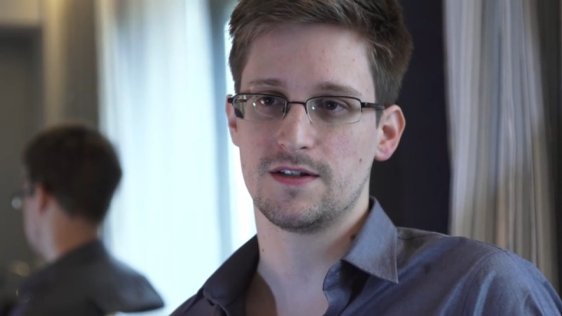
Like many other civil liberties advocates, I’ve been annoyed by how the media has spilled more ink talking about Edward Snowden than the issues that he’s trying to raise. I’ve grumbled at the “Where in the World is Carmen Sandiego?” reality show and the way in which TV news glosses over the complexities that investigative journalists have tried to publish as the story unfolded. But then a friend of mine – computer scientist Nadia Heninger – flipped my thinking upside down with a simple argument: Snowden is offering the public a template for how to whistleblow; leaking information is going to be the civil disobedience of our age.
In recent years, increasing numbers of concerned citizens have been coming forward as whistleblowers, pointing out questionable acts by the American government agencies and corporations. The current administration has responded to this practice by prosecuting more whistleblowers under the Espionage Act than all previous presidents combined. Most of what leakers share is barely heard by the public. For example, most people don’t know who Mark Klein is even though he publicly shared information that showed that his former employer – AT&T – was working with the NSA to analyze Americans’ phone calls in violation of citizens’ privacy. The news coverage he got in 2006 was significant to advocates, but the public doesn’t know his name or even realize that Verizon wasn’t the first telecom to share extensively with the NSA.
The public is more likely to have heard of Bradley Manning, mostly because Julian Assange has managed to keep himself – and, thus, the issues at hand – in the news. Debates about WikiLeaks meant that the coverage of the diplomatic cable leaks were a story that journalists covered for more than a second. Julian Assange’s questionable morality and arrogance complicated that story, allowing anti-leakers to undermine the credibility and intentions of all who were involved. At the same time, his antics enabled an ongoing media circus which has meant that people are at least aware of the frame of leaking, even if they think poorly of Assange and, by proxy, Manning. Manning may have been silenced but his decisions continue to be discussed, for better and for worse.
Snowden has presented the public with a different case study. Although many anti-leakers have worked hard to portray him as a dropout / misfit / uneducated fool, that hasn’t stuck. At best, people have managed to tar him through his association with Wikileaks and his willingness to go to countries that are perceived as American foes (China, Russia, Venezuela, Ecuador, etc.). Not only does this narrative – as well as the American governmental response – suggest that Cold War attitudes are still ever-present, but it also puts American arrogance on display. Blocking the Bolivian president’s access to airspace and searching his plane didn’t help.
As this drama has played out, Snowden has become a walking diplomatic incident. Even though he has been disciplined and thoughtful in what he has shared, revealing little more than advocacy organizations have suspected or known for a long time and sharing vague documents that don’t fully make sense, every ounce of American political might has been operationalized to go after him as a serious threat, piquing curiosity about what else he knows and what he might do. Most likely, had he just revealed what he revealed and then disappeared, it would’ve been a news story for a week and then been quickly forgotten. But because the focus is on him, aspects of what he’s tried to argue keep dripping through the salacious coverage of his whereabouts.
More importantly though, as Nadia pointed out to me, he’s creating a template for how to share information. He’s clearly learned from previous whistleblowers and is using many of their tactics. But he’s also forged his own path which has had its own follies. Regardless of whether he succeeds or fails in getting asylum somewhere, he’s inspired others to think about how they can serve as a check to power. And this is terrifying for any government.
Ironically, the government’s efforts to deter future whistleblowers by being tough on Snowden is most likely to backfire. This kind of zero-tolerance approach assumes that those who are engaging in whistleblowing are operating under the same logic, priorities, and values as government actors. Sure, plenty of people don’t come forward because they’re too scared; that’s not new. But because of how the government responded to Snowden, those who are willing to take on the big fight now have a model for how to do it, how to iterate based on what they learned watching Snowden. The US government, far from deterring future whistleblowers, has just incentivized a new generation of them by acting like a megalomaniac.
And this is where I think that Nadia’s second point is of serious importance. People growing up with the internet understand that information is power. Those who’ve watched protests in recent years know that traditional physical civil disobedience doesn’t create the iconic narratives and images that it once did. And thus, not surprisingly, what it means to protest is changing. This is further complicated by an increased obsession with secrecy – secret courts, secret laws, secret practices – that make using the rule of law to serve as a check to power ineffective. Thus, questioning authority by leaking information that shows that power is being abused becomes a more valuable and notable form of civil disobedience. As with all forms of civil disobedience, there are significant consequences. But when secrecy is what’s being challenged, the biggest risk is not being beaten by a police officer for staging an event, but being disappeared or silenced by the institutions being challenged or embarrassed. And thus, as much as I hate to accept it, becoming a diplomatic incident is extraordinarily powerful not just for self-protection, but also as a way to make sure that the media doesn’t lose interest in the issues at play.
I want to live in a society that is willing to critically interrogate how power is operationalized and how institutions and the rule of law function as a check to power. To me, this is an essential aspect of democracy. Unchecked power is how dictatorships emerge. If the rule of law is undermined and secrecy becomes the status quo, it becomes necessary for new civil disobedience tactics to emerge. And, more than the content of the leaks, this is what I think that we’re watching unfold.
This post was originally posted on Medium.

